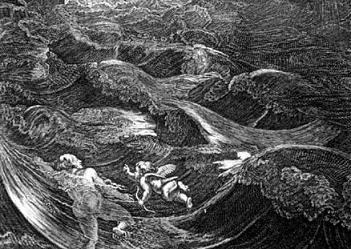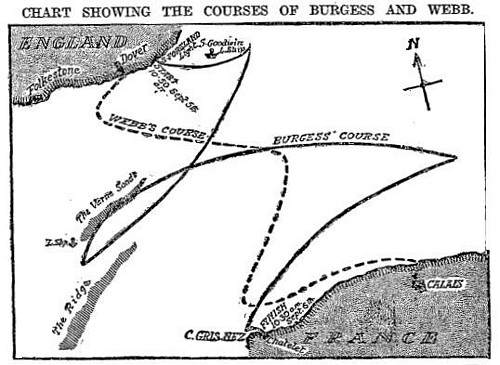|
Arkadiy Holovchenko
Arkadiy Holovchenko (born 5 August 1936) is a Ukrainian former swimmer. He competed in the men's 200 metre breaststroke at the 1960 Summer Olympics The 1960 Summer Olympics (), officially known as the Games of the XVII Olympiad () and commonly known as Rome 1960 (), were an international multi-sport event held from 25 August to 11 September 1960 in Rome, Italy. Rome had previously been awar ... for the Soviet Union. References External links * 1936 births Living people Ukrainian male breaststroke swimmers Olympic swimmers for the Soviet Union Swimmers at the 1960 Summer Olympics Sportspeople from Kropyvnytskyi Soviet male breaststroke swimmers 20th-century Ukrainian sportsmen {{Ukraine-swimming-bio-stub ... [...More Info...] [...Related Items...] OR: [Wikipedia] [Google] [Baidu] |
Kropyvnytskyi
Kropyvnytskyi (, ) is a city in central Ukraine, situated on the Inhul, Inhul River. It serves as the administrative center of Kirovohrad Oblast. Population: Over its history, Kropyvnytskyi has changed its name several times. The settlement was known as Yelysavethrad after Empress Elizabeth of Russia from 1752 to 1924, or simply Elysavet. In 1924, as part of the Soviet Union, it became known as Zinovievsk after the revolutionary Grigory Zinoviev, who was born there. Following the assassination of Sergei Kirov in 1934, the town was renamed Kirovo. Concurrently with the formation of Kirovohrad Oblast on 10 January 1939, and to distinguish it from Kirov Oblast in central Russia, Kirovo was renamed Kirovohrad. As part of independent Ukraine, the name of the city was then changed to ''Kropyvnytskyi'' in 2016 due to Decommunization in Ukraine, decommunization laws, in honour of Marko Kropyvnytskyi, who was born near the city. [...More Info...] [...Related Items...] OR: [Wikipedia] [Google] [Baidu] |
Swimming (sport)
Swimming is an individual or team Racing, racing sport that requires the use of one's entire body to move through water. The sport takes place in Swimming pool, pools or open water (e.g., in a sea or lake). Competitive swimming is one of the most popular Olympic sports, with varied distance events in Butterfly stroke, butterfly, backstroke, breaststroke, Freestyle swimming, freestyle, and individual medley. In addition to these individual events, four swimmers can take part in either a freestyle or medley Relay race, relay. A medley relay consists of four swimmers who will each swim a different stroke, ordered as backstroke, breaststroke, butterfly and freestyle. Swimming each stroke requires a set of specific techniques; in competition, there are distinct regulations concerning the acceptable form for each individual stroke. There are also regulations on what types of swimsuits, caps, jewelry and injury tape that are allowed at competitions. There are many health benefits to ... [...More Info...] [...Related Items...] OR: [Wikipedia] [Google] [Baidu] |
Swimming At The 1960 Summer Olympics – Men's 200 Metre Breaststroke
The men's 200 metre breaststroke event at the 1960 Olympic Games took place between 26 and 30 August. Medalists Results Heats Six heats were held; the swimmers with the sixteen fastest times advanced to the Semifinals. Because there were three swimmers with a time of 2:42.4, a swim-off was held to determine the two that would advance. Key Heat One Heat Two Heat Three Heat Four Heat Five Heat Six Swim-Off Semifinals Two heats were held; the fastest eight swimmers advanced to the Finals. Those that advanced are highlighted. Semifinal One Semifinal Two Final References {{DEFAULTSORT:Swimming at the 1960 Summer Olympics – Men's 200 Metre Breaststroke Swimming at the 1960 Summer Olympics, Men's breaststroke 200 metre Men's events at the 1960 Summer Olympics ... [...More Info...] [...Related Items...] OR: [Wikipedia] [Google] [Baidu] |
1960 Summer Olympics
The 1960 Summer Olympics (), officially known as the Games of the XVII Olympiad () and commonly known as Rome 1960 (), were an international multi-sport event held from 25 August to 11 September 1960 in Rome, Italy. Rome had previously been awarded the administration of the 1908 Summer Olympics. However, following the eruption of Mount Vesuvius Mount Vesuvius#Eruptions in the 20th century, in 1906, the city had no choice but to decline and pass the honour to 1908 Summer Olympics, London. The Soviet Union won the most gold and overall medals at the 1960 Games. The 1960 Summer Paralympics, 1st Paralympic Games were held in Rome in conjunction with the 1960 Summer Olympics, marking the first time such events coincided. Host city selection On 15 June 1955, at the 50th List of IOC meetings#IOC Sessions, IOC Session in Paris, France, Rome won the right to host the 1960 Games, having beaten Brussels, Mexico City, Tokyo, Detroit, Budapest and finally Lausanne. Tokyo and Mexico City woul ... [...More Info...] [...Related Items...] OR: [Wikipedia] [Google] [Baidu] |
1936 Births
Events January–February * January 20 – The Prince of Wales succeeds to the throne of the United Kingdom as King Edward VIII, following the death of his father, George V, at Sandringham House. * January 28 – Death and state funeral of George V, State funeral of George V of the United Kingdom. After a procession through London, he is buried at St George's Chapel, Windsor Castle. * February 4 – Radium E (bismuth-210) becomes the first radioactive element to be made synthetically. * February 6 – The 1936 Winter Olympics, IV Olympic Winter Games open in Garmisch-Partenkirchen, Germany. * February 10–February 19, 19 – Second Italo-Ethiopian War: Battle of Amba Aradam – Italian forces gain a decisive tactical victory, effectively neutralizing the army of the Ethiopian Empire. * February 16 – 1936 Spanish general election: The left-wing Popular Front (Spain), Popular Front coalition takes a majority. * February 26 – February 26 Incident (二・二六事件, ... [...More Info...] [...Related Items...] OR: [Wikipedia] [Google] [Baidu] |
Living People
Purpose: Because living persons may suffer personal harm from inappropriate information, we should watch their articles carefully. By adding an article to this category, it marks them with a notice about sources whenever someone tries to edit them, to remind them of WP:BLP (biographies of living persons) policy that these articles must maintain a neutral point of view, maintain factual accuracy, and be properly sourced. Recent changes to these articles are listed on Special:RecentChangesLinked/Living people. Organization: This category should not be sub-categorized. Entries are generally sorted by family name In many societies, a surname, family name, or last name is the mostly hereditary portion of one's personal name that indicates one's family. It is typically combined with a given name to form the full name of a person, although several give .... Maintenance: Individuals of advanced age (over 90), for whom there has been no new documentation in the last ten ... [...More Info...] [...Related Items...] OR: [Wikipedia] [Google] [Baidu] |
Ukrainian Male Breaststroke Swimmers
Ukrainian may refer or relate to: * Ukraine, a country in Eastern Europe * Ukrainians, an East Slavic ethnic group native to Ukraine * Demographics of Ukraine * Ukrainian culture, composed of the material and spiritual values of the Ukrainian people * Ukrainian language, an East Slavic language of the Indo-European language family, spoken primarily in Ukraine * Ukrainian cuisine, the collection of the various cooking traditions of the people of Ukraine See also * Languages of Ukraine * Name of Ukraine * Religion in Ukraine * Ukrainians (other) * Ukraine (other) * Ukraina (other) Ukraina is the Ukrainian, Russian, or Polish name for Ukraine. Ukraina may also refer to: Places * Ukraina, Łódź Voivodeship, a village in central Poland * Ukraina, Lesser Poland Voivodeship, a village in southern Poland * Ukraina No. 513, ... * Ukrainia (other) * {{disambiguation Language and nationality disambiguation pages ... [...More Info...] [...Related Items...] OR: [Wikipedia] [Google] [Baidu] |
Olympic Swimmers For The Soviet Union
Olympic or Olympics may refer to Sports Competitions * Olympic Games, international multi-sport event held since 1896 ** Summer Olympic Games ** Winter Olympic Games * Ancient Olympic Games, ancient multi-sport event held in Olympia, Greece between 776 BC and 393 AD * Olympic (greyhounds), a competition held annually at Brighton & Hove Greyhound Stadium Clubs and teams * Adelaide Olympic FC, a soccer club from Adelaide, South Australia * Fribourg Olympic, a professional basketball club based in Fribourg, Switzerland * Sydney Olympic FC, an Australian soccer club * Olympic Club (Barbacena), a Brazilian football club based in Barbacena, Minas Gerais state * Olympic Mvolyé, a Cameroonian football club based in Mvolyé * Olympic Club (Egypt), a football and sports club based in Alexandria * Blackburn Olympic F.C., an English football club based in Blackburn, Lancashire * Rushall Olympic F.C., an English football club based in Rushall * FC Olympic Tallinn, an Eston ... [...More Info...] [...Related Items...] OR: [Wikipedia] [Google] [Baidu] |
Swimmers At The 1960 Summer Olympics
Swimming is an individual or team racing sport that requires the use of one's entire body to move through water. The sport takes place in pools or open water (e.g., in a sea or lake). Competitive swimming is one of the most popular Olympic sports, with varied distance events in butterfly, backstroke, breaststroke, freestyle, and individual medley. In addition to these individual events, four swimmers can take part in either a freestyle or medley relay. A medley relay consists of four swimmers who will each swim a different stroke, ordered as backstroke, breaststroke, butterfly and freestyle. Swimming each stroke requires a set of specific techniques; in competition, there are distinct regulations concerning the acceptable form for each individual stroke. There are also regulations on what types of swimsuits, caps, jewelry and injury tape that are allowed at competitions. There are many health benefits to swimming, but it is possible for competitive swimmers to incur in ... [...More Info...] [...Related Items...] OR: [Wikipedia] [Google] [Baidu] |
Sportspeople From Kropyvnytskyi
An athlete is most commonly a person who competes in one or more sports involving physical strength, speed, power, or endurance. Sometimes, the word "athlete" is used to refer specifically to sport of athletics competitors, i.e. including track and field and marathon runners but excluding e.g. swimmers, footballers or basketball players. However, in other contexts (mainly in the United States) it is used to refer to all athletics (physical culture) participants of any sport. For the latter definition, the word sportsperson or the gendered sportsman or sportswoman are also used. A third definition is also sometimes used, meaning anyone who is physically fit regardless of whether they compete in a sport. Athletes may be professionals or amateurs. Most professional athletes have particularly well-developed physiques obtained by extensive physical training and strict exercise, accompanied by a strict dietary regimen. Definitions The word "athlete" is a romanization of the , ''at ... [...More Info...] [...Related Items...] OR: [Wikipedia] [Google] [Baidu] |
Soviet Male Breaststroke Swimmers
The Union of Soviet Socialist Republics. (USSR), commonly known as the Soviet Union, was a transcontinental country that spanned much of Eurasia from 1922 until it dissolved in 1991. During its existence, it was the largest country by area, extending across eleven time zones and sharing borders with twelve countries, and the third-most populous country. An overall successor to the Russian Empire, it was nominally organized as a federal union of national republics, the largest and most populous of which was the Russian SFSR. In practice, its government and economy were highly centralized. As a one-party state governed by the Communist Party of the Soviet Union (CPSU), it was a flagship communist state. Its capital and largest city was Moscow. The Soviet Union's roots lay in the October Revolution of 1917. The new government, led by Vladimir Lenin, established the Russian SFSR, the world's first constitutionally communist state. The revolution was not accepted by all ... [...More Info...] [...Related Items...] OR: [Wikipedia] [Google] [Baidu] |




